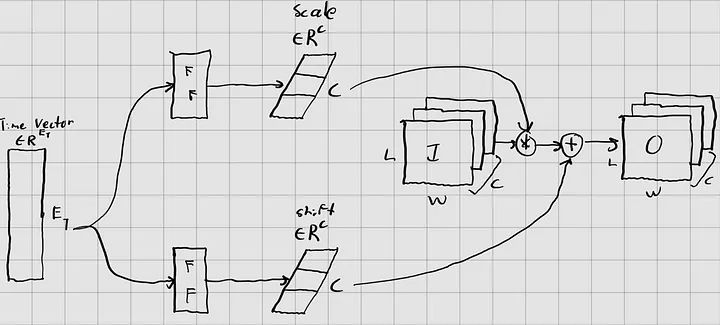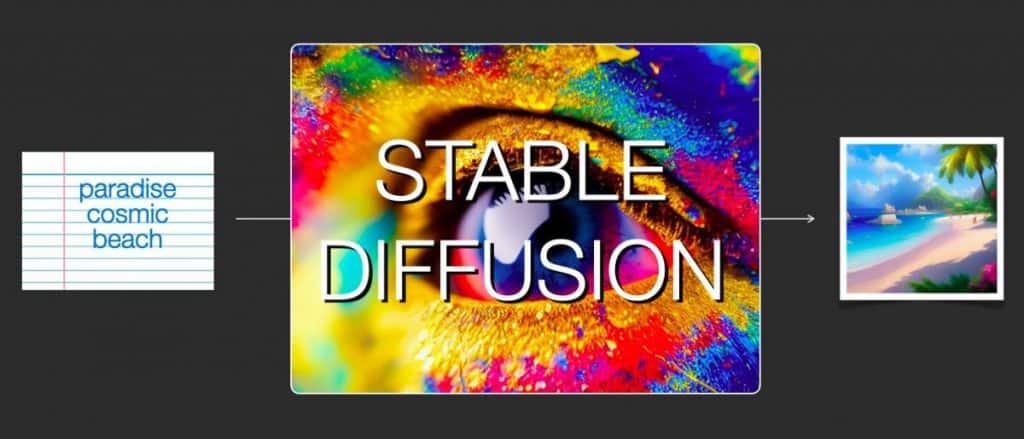Best Resources for Beginners to Learn About Stable Diffusion Models in AI



We’ve gathered quite a few study materials lately, particularly on diffusion models. Once again, we aim to provide a straightforward guide for grasping the basics. So, let’s dive into some blogs that offer a solid understanding of this topic’s fundamentals and its chronological progression.
1. Diffusion Models — DDPMs, DDIMs, and Classifier Free Guidance

This extensive post starts right off with VAE and GAN-S. The author, Gabriel Mongaras, explains the concepts in an accessible manner, and the article is beneficial for those interested in the underlying mechanisms of these AI models. It highlights the limitations of Generative Adversarial Networks (GANs) and how diffusion models are emerging as a promising alternative, offering better stability and image quality. The article also includes practical content, as the author has coded the implementations discussed, providing a hands-on learning opportunity for readers.
Link: Read it here.
Why to Read
The article “Diffusion Models — DDPMs, DDIMs, and Classifier Free Guidance” is recommended reading because it provides insightful information about how diffusion models have changed over time, particularly in relation to image generation. The article delves into the technical aspects and advancements of various diffusion models, starting from more recent developments like Classifier-Free Guidance to Denoising Diffusion Probabilistic Models (DDPMs).
2. Understanding Diffusion & Stable Diffusion in AI

This article discusses the architecture of Stable Diffusion Models and their application in creating images from text descriptions, providing a detailed explanation of the technical aspects, including the use of Convolutional UNet architecture and transformers. The piece also touches on conditional image generation through Guided Diffusion and methods to scale up these models for high-quality image production, making it highly beneficial for enthusiasts and professionals in the field of AI and machine learning who are interested in understanding or working with AI-generated art. The practical examples and results provided in the article further enhance its value, offering readers a clear view of the models’ capabilities.
Link: Read it here.
Why to Read
You should read the article “Understanding Diffusion & Stable Diffusion in AI” because it offers valuable insights into the latest advancements in generative models, specifically focusing on Diffusion Models. These models, highlighted for their ability to generate diverse, high-resolution images, are the forefront of current AI art generation technology. The article delves deep into the principles behind diffusion models, inspired by non-equilibrium thermodynamics, and explains the forward and reverse diffusion processes.
3. The Illustrated Stable Diffusion by Jay Alammar

The article provides insights into the components of Stable Diffusion, including the text-understanding component that translates text into a numeric representation, the image generator, and the image decoder. It also explains the concept of diffusion in the context of AI and how it contributes to the step-by-step creation of high-quality images.
The article explains the groundbreaking nature of AI’s ability to create stunning visuals from text descriptions, highlighting Stable Diffusion’s role in making high-quality models accessible due to its efficiency in terms of speed and low resource requirements. It serves as a gentle introduction to how Stable Diffusion operates, explaining its versatility and the components involved in the process.
Link: Read it here.
Why to Read
The comprehensive manual “The Illustrated Stable Diffusion” by Jay Alammar explores the complexities of AI image generation with a focus on the Stable Diffusion model. This article is valuable because it provides a thorough yet understandable explanation of difficult ideas, making it a must-read for anyone trying to comprehend or use AI for image generation.
4. Time to Practice
Now, you can move on to practical applications by taking the course from Diffusers on HuggingFace: Read the tutorial here.
To get into the nitty-gritty details, watch this 5-hour video, which shows how to write stable diffusion from A to Z:
You can also find repositories related to it here.
5. Additional Resources
For a deeper dive into the past years and a more comprehensive understanding, check out these articles:
- Diffusion models beat GANs on image synthesis
- Denoising diffusion probabilistic models
- Denoising diffusion implicit models
- Classifier-free diffusion guidance
- Improved denoising diffusion probabilistic models
- Dall-E 2
- Stable diffusion
- Kandinsky
If you think we’ve missed any essential resources, please don’t hesitate to leave a comment and let me know. Happy learning!
Disclaimer
In line with the Trust Project guidelines, please note that the information provided on this page is not intended to be and should not be interpreted as legal, tax, investment, financial, or any other form of advice. It is important to only invest what you can afford to lose and to seek independent financial advice if you have any doubts. For further information, we suggest referring to the terms and conditions as well as the help and support pages provided by the issuer or advertiser. MetaversePost is committed to accurate, unbiased reporting, but market conditions are subject to change without notice.
About The Author
Damir is the team leader, product manager, and editor at Metaverse Post, covering topics such as AI/ML, AGI, LLMs, Metaverse, and Web3-related fields. His articles attract a massive audience of over a million users every month. He appears to be an expert with 10 years of experience in SEO and digital marketing. Damir has been mentioned in Mashable, Wired, Cointelegraph, The New Yorker, Inside.com, Entrepreneur, BeInCrypto, and other publications. He travels between the UAE, Turkey, Russia, and the CIS as a digital nomad. Damir earned a bachelor's degree in physics, which he believes has given him the critical thinking skills needed to be successful in the ever-changing landscape of the internet.
More articles

Damir is the team leader, product manager, and editor at Metaverse Post, covering topics such as AI/ML, AGI, LLMs, Metaverse, and Web3-related fields. His articles attract a massive audience of over a million users every month. He appears to be an expert with 10 years of experience in SEO and digital marketing. Damir has been mentioned in Mashable, Wired, Cointelegraph, The New Yorker, Inside.com, Entrepreneur, BeInCrypto, and other publications. He travels between the UAE, Turkey, Russia, and the CIS as a digital nomad. Damir earned a bachelor's degree in physics, which he believes has given him the critical thinking skills needed to be successful in the ever-changing landscape of the internet.























































